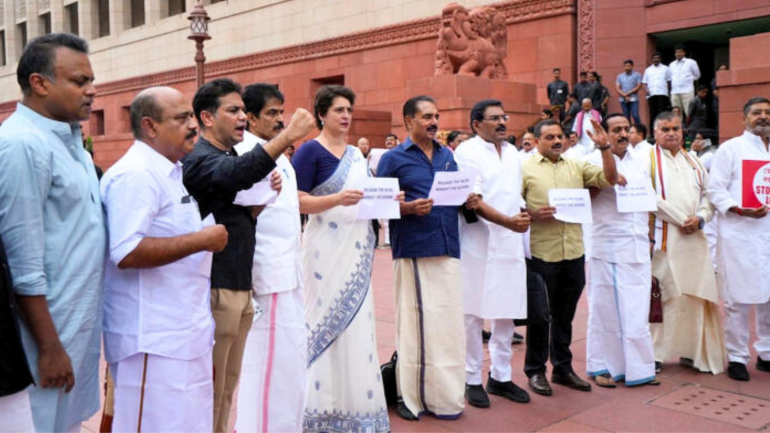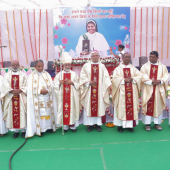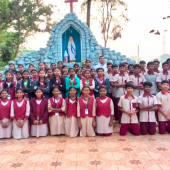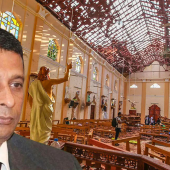India: Protests Grow Over Arrest of Catholic Nuns on Human Trafficking Charges

Widespread protests have erupted across India following the arrest of two Catholic nuns in Chhattisgarh state on controversial charges of human trafficking and religious conversion.
The arrests, made on July 25, have sparked outrage among Church leaders, civil society, and political figures alike, many decrying the move as an attack on religious freedom and minority rights.
According to National Catholic Register (NCR), the two nuns, Sister Preetha Mary and Sister Vandana Francis of the Assisi Sisters of Mary Immaculate, were arrested at Durg Railway Station while receiving three young adult women who had come from Kerala for employment in a convent-run institution. The women, all over 18, carried written consent letters from their families, yet the nuns were accused of trafficking and forced conversion by Hindu nationalist activists.
Cardinal Baselios Mar Cleemis, former president of the Catholic Bishops' Conference of India (CBCI), denounced the arrests during a protest march to the Kerala Legislative Assembly in Thiruvananthapuram. “What kind of justice is this?” he asked, calling for the nuns’ immediate release. He was joined by dozens of bishops, priests, and hundreds of laypeople, many wearing black ribbons in silent protest.
The Catholic Bishops' Conference of India, in a statement issued on July 27, expressed “outrage and deep concern” over what they described as “fabricated charges and physical harassment” against the nuns. They further alleged that anti-Christian elements are monitoring and targeting Catholic religious sisters, particularly in states governed by the Bharatiya Janata Party (BJP).
As reported by NCR, Sister M. Nirmalini, president of the women’s wing of the Conference of Religious India, called the detentions “illegal and baseless.” Speaking to Catholic News Agency (CNA), she said, “Shockingly, the charges have been made without ascertaining or verifying facts.” She warned that a “false narrative” is being spread to polarize public opinion against Christians, especially against tribal and Dalit communities, who often seek employment through Church-run programs.
Several congregations, Nirmalini noted, have since advised their members to avoid wearing religious habits in public to prevent further harassment.
Even leaders within the BJP have voiced concern. Kerala BJP president Rajeev Chandrasekhar stated in New Delhi, “Our top priority is to protect the nuns and ensure justice.” Despite this, the BJP-led state government in Chhattisgarh has opposed bail, leaving the sisters in custody for nearly a week.
At a protest in Thrissur, Archbishop Andrews Thazhath, president of the CBCI, condemned the arrests as a “national shame.” He said, “You cannot hold the Indian Constitution hostage. Jailing nuns for offering employment to young Christian women with parental consent is a violation of everything this democracy stands for.”
During a parliamentary debate on July 30, John Brittas, a Catholic Member of Parliament, echoed this sentiment: “The persecution of the nuns by imprisoning them is a shame for the country.”
Public demonstrations continue across Kerala and other major cities, including Bangalore, with both Church leaders and civil society members calling for the nuns’ unconditional release and an independent investigation into the case.
As National Catholic Register notes, the incident is part of a broader trend of rising hostility toward Christian minorities in India, with growing concern over the misuse of anti-conversion laws and increased surveillance of religious workers, especially women religious serving in marginalized communities.
Radio Veritas Asia (RVA), a media platform of the Catholic Church, aims to share Christ. RVA started in 1969 as a continental Catholic radio station to serve Asian countries in their respective local language, thus earning the tag “the Voice of Asian Christianity.” Responding to the emerging context, RVA embraced media platforms to connect with the global Asian audience via its 21 language websites and various social media platforms.













